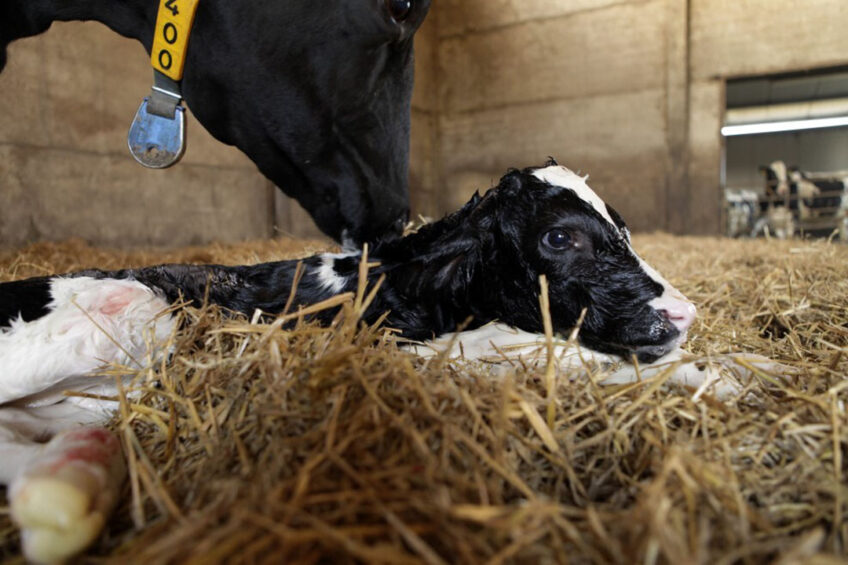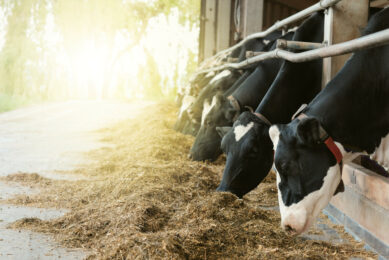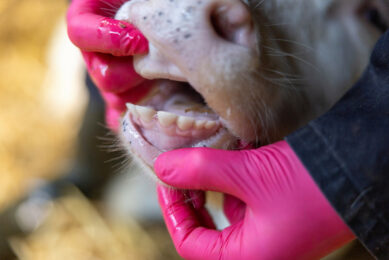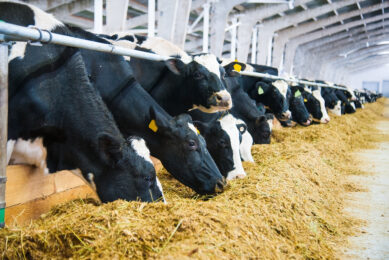Impact of probiotics on neonatal calves

Colonisation of potentially pathogenic bacteria can cause diarrhoea and respiratory disease in neonatal calves, which are the 2 primary causes of early calf morbidity and mortality.
Morbidity rates due to neonatal diarrhoea can be as high as 21% in individual herds, and mortality rates can be as high as 5-8%.
Animals harbour a complex microbiota inside the digestive tract which can be modified to promote or even restore health. Antimicrobials and probiotics can be used to modulate the microorganisms in the gastrointestinal tract. However, administrating antimicrobials can affect the beneficial gastrointestinal tract microbiota, reducing feed efficiency and calf growth.
Study
In this study, 48 male newborn Holstein were selected from 165 newborn calves based on weight 41.3 kg (± 3.89 kg, standard deviation) within 2 hours after birth, and randomly assigned to 1 of 3 groups:
1. CON – milk replacer with no compound probiotics
2. LP – milk replacer + 0.12 g of compound probiotics per head per day
3. HP – milk replacer + 1.20 g of compound probiotics per head per day
At 30, 60, and 90 days of age, calves were weighed with a digital scale, and the body sizes were measured including withers height, hip height, body length, and heart girth.
Faeces were collected and tested daily for consistency.
At 40 and 80 days of age, blood was sampled, and biochemical indicators were determined for glucose, total protein, and immunoglobulin concentrations.
At 90 days of age, rumen fluid was collected 3 hours after the morning feeding to determine the pH and volatile fatty acids levels.
Results
Diet supplemented with compound probiotics had no effect on growth performance, although it decreased the withers height at 90 days of age.
The HP group showed the most potential improvement of calf immunity, indicated by increased concentrations of total serum protein and immunoglobulins at 40 days of age. At 80 days of age there was improved antioxidant capacity, indicated by increased activity of superoxide dismutases (SODs) which constitute a very important antioxidant defence against oxidative stress in the body.
Diets supplemented with compound probiotics promoted the production of butyric acid, which is the main energy resource of the rumen wall, suggesting that the compound probiotics improved rumen development.
Newborn calves have high rates of morbidity and mortality and so it is imperative to implement strategies to ensure the healthy state and nutritional level of calves in the early life stage. Overall, diets supplemented with compound probiotics improved the health of calves.
Source: Wang, H., et al. (2022 March). Effects of compound probiotics on growth performance, rumen fermentation, blood parameters, and health status of neonatal Holstein calves. Journal of Dairy Science 105 (3), 2190–2200. doi: 10.3168/jds.2021-20721
Join 13,000+ subscribers
Subscribe to our newsletter to stay updated about all the need-to-know content in the dairy sector, two times a week.










